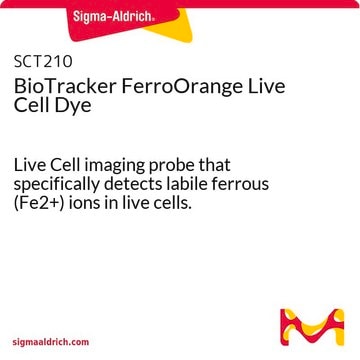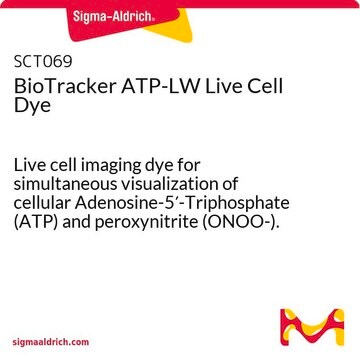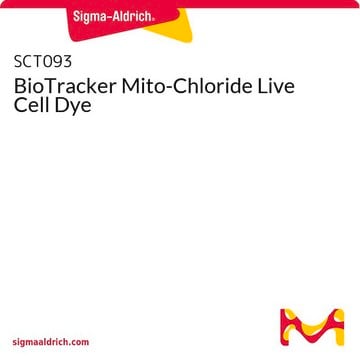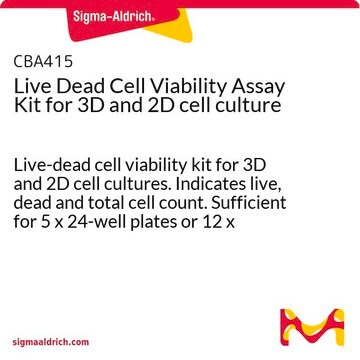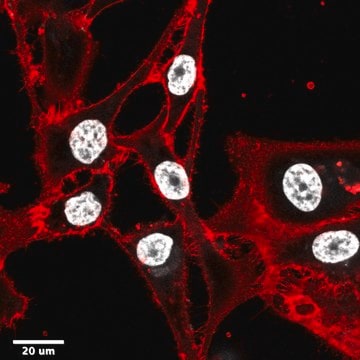SCT068
BioTracker DUAL dUTPase Live Cell reporter
Live cell probe for activity of cellular enzyme deoxyuridine triphosphatase(dUTPase) involved in deactivation of damaged nucleotides. The probe acts as a luciferase luminescencereporter of dUPTase.
Iniciar sesiónpara Ver la Fijación de precios por contrato y de la organización
About This Item
UNSPSC Code:
12352207
NACRES:
NA.47
Productos recomendados
form
lyophilized
technique(s)
activity assay: suitable
detection method
chemiluminescent
General description
Nucleotide surveillance enzymes play important roles inhuman health, by monitoring damaged monomers in the nucleotide pooland deactivating them before they are incorporated into chromosomalDNA or disrupt nucleotide metabolism. Deamination ofcytosine, leading to uracil in DNA and in the nucleotide pool, can bedeleterious, causing DNA damage. The enzyme deoxyuridine triphosphatase(dUTPase) is the sole enzyme that cleanses the nucleotide pool of deaminated cytosine. Measuring the activity of this enzyme is importantboth in basic research and in clinical applications involving thispathway.The BioTracker DUAL dUTPase live cell probe is a luminescence probe that specifically reports on dUTPase activity in real time. The probe is a chimera of dUTP and ATP. dUTPase enzyme accepts the DUAL probe as an efficient substrate and upon hydrolysis releases ATP, which is detected sensitively by luciferase luminescence.Note: Luceferin and luciferase enzyme are needed to detect ATP released by hydrolysis, but are not included in this product. Spectral Properties:Luminescence intensity.Research Category:Live Cell Dye
Disclaimer
Unless otherwise stated in our catalog or other company documentation accompanying the product(s), our products are intended for research use only and are not to be used for any other purpose, which includes but is not limited to, unauthorized commercial
Storage Class
11 - Combustible Solids
wgk_germany
WGK 3
flash_point_f
Not applicable
flash_point_c
Not applicable
Certificados de análisis (COA)
Busque Certificados de análisis (COA) introduciendo el número de lote del producto. Los números de lote se encuentran en la etiqueta del producto después de las palabras «Lot» o «Batch»
¿Ya tiene este producto?
Encuentre la documentación para los productos que ha comprado recientemente en la Biblioteca de documentos.
Nuestro equipo de científicos tiene experiencia en todas las áreas de investigación: Ciencias de la vida, Ciencia de los materiales, Síntesis química, Cromatografía, Analítica y muchas otras.
Póngase en contacto con el Servicio técnico